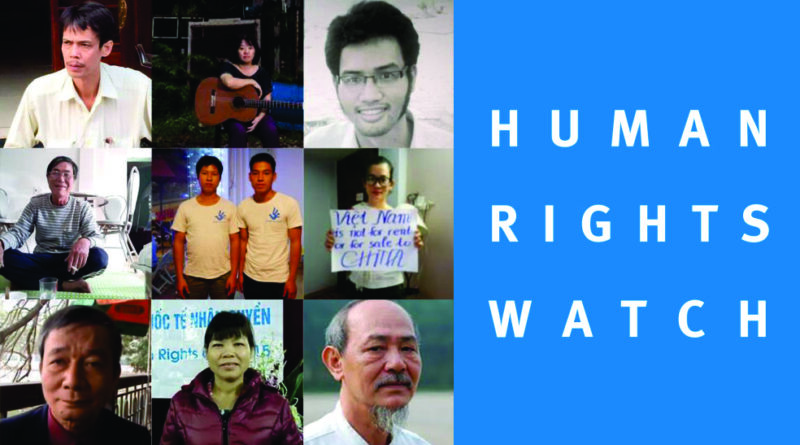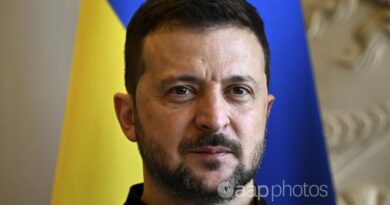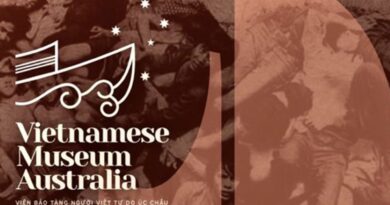Vietnam: Rights Violations Intensify
Numerous New Arrests in Lead-up to Party Congress
(New York, January 13, 2021) – Vietnamese authorities increased restrictions on basic political and civil rights in 2020, especially freedom of expression and association, Human Rights Watch said today in its World Report 2021.
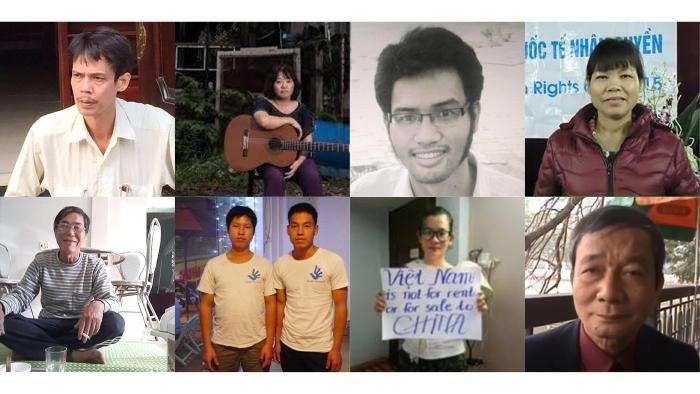
The tightening of restrictions on free expression appears to be linked to the National Congress of the Communist Party of Vietnam, scheduled for January 2021. In 2020, the Vietnamese government frequently punished people for criticizing the government or for joining groups to promote democracy or human rights. The authorities arbitrarily arrested or prosecuted at least 24 people for violations of overbroad and vague national security crimes, such as “conducting propaganda” against the state, or “abusing rights to freedom and democracy to infringe upon the interests of the state.”
“It was another abysmal year for human rights in Vietnam,” said John Sifton, Asia advocacy director. “Through 2020, the police arrested several vocal dissidents and detained numerous others for speaking their minds and exercising their basic free expression rights.”
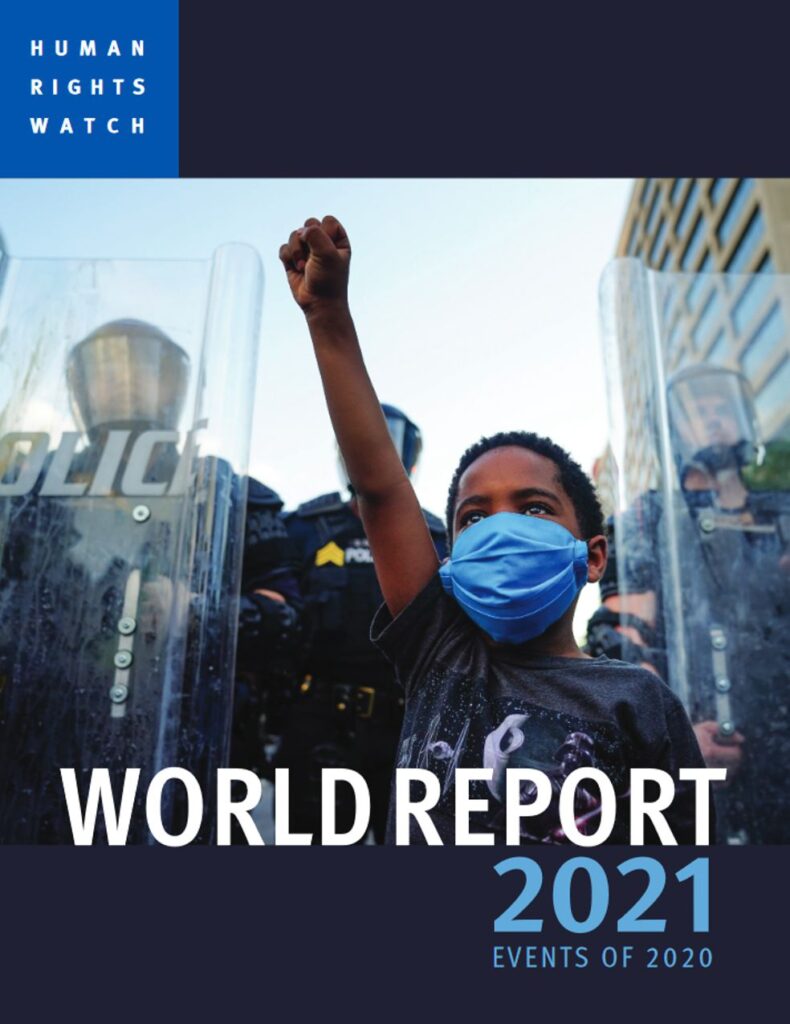
In the 761-page World Report 2021, its 31st edition, Human Rights Watch reviews human rights practices in more than 100 countries. In his introductory essay, Executive Director Kenneth Roth argues that the incoming United States administration should embed respect for human rights in its domestic and foreign policy, in a way that is more likely to survive future US administrations that might be less committed to human rights. Roth emphasizes that even as the Trump administration mostly abandoned the protection of human rights, other governments stepped forward to champion rights. The Biden administration should seek to join, not supplant, this new collective effort.
The Vietnamese authorities also blocked access to politically independent websites, and pressured social media accounts to take down accounts, posts, or video clips critical of the government.
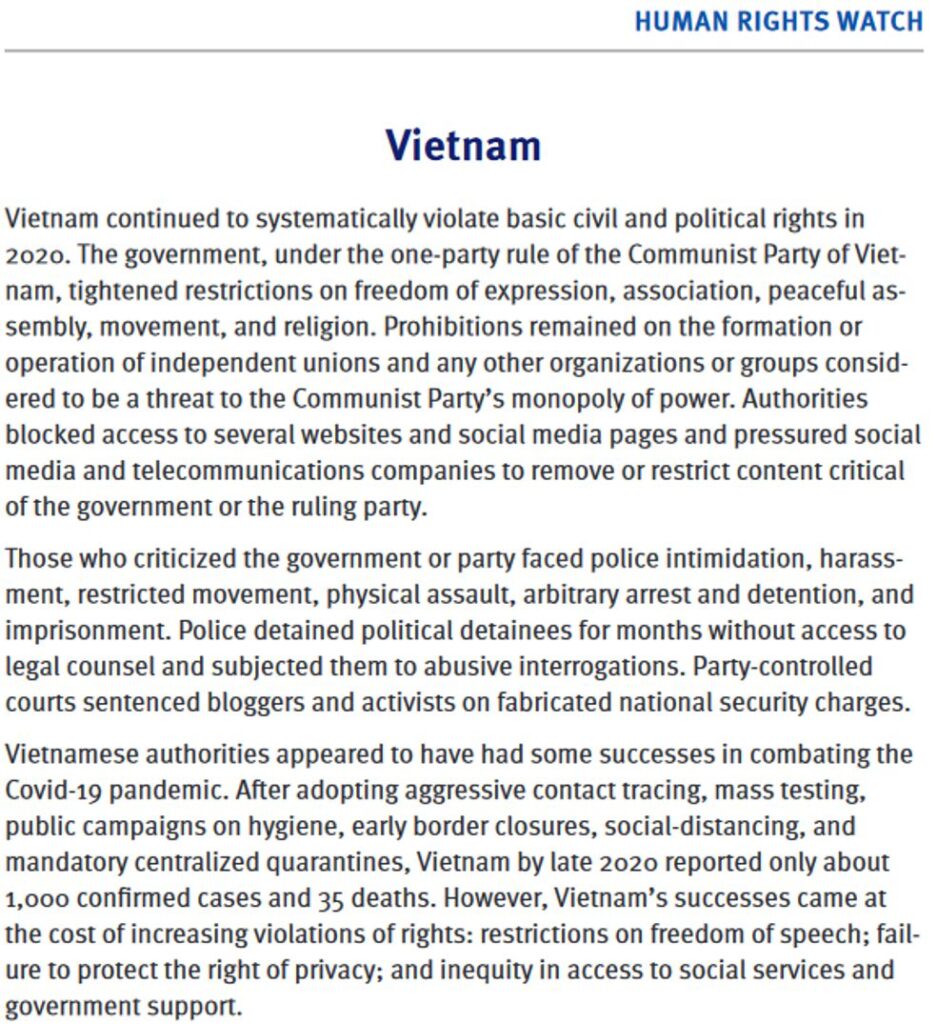
In April, the government throttled access to Facebook’s local cache servers, demanding that the company remove pages controlled by dissidents. Facebook, bowing to pressure, agreed to restrict access to the pages within Vietnam, setting a worrying precedent. In early September, the Ministry of Information and Communications praised Facebook and YouTube for their “positive change in collaborating with MIC to block information that violates Vietnam’s law.”
Also in April, the police arrested a former political prisoner, Tran Duc Thach, for being affiliated with a pro-democracy group called Brotherhood for Democracy. He was charged for subversion under article 109 of the penal code.
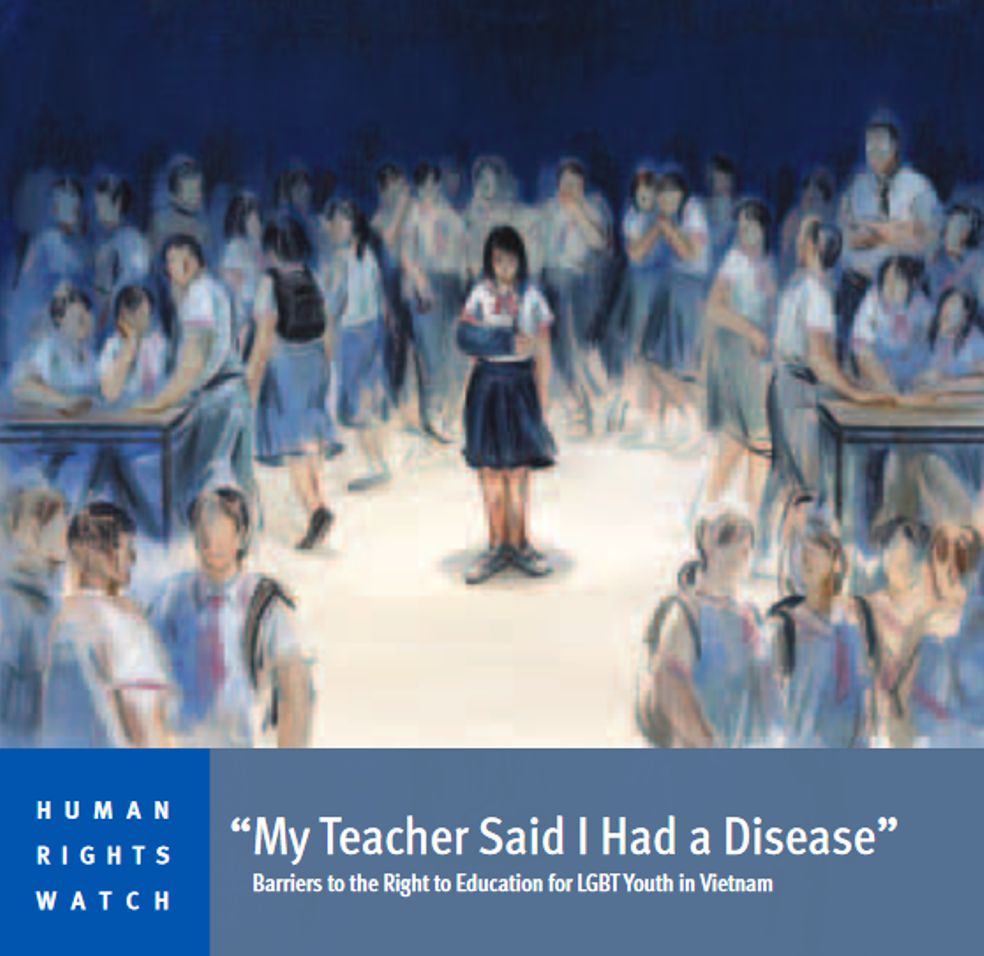
In May and June, the police arrested two members of the Independent Journalists Association of Vietnam, Nguyen Tuong Thuy and Le Huu Minh Tuan. In June, the police arrested three contributors of the Liberal Publishing House, Can Thi Theu, also a former political prisoner, and her sons Trinh Ba Phuong and Trinh Ba Tu. In October, police arrested the co-founder of the Liberal Publishing House, prominent independent blogger Pham Doan Trang. All of them were charged with conducting propaganda against the state under article 117 of the penal code.
“The Vietnamese government fears democracy, an independent media, and freedom,” Sifton said. “Donors and trade partners need to publicly raise concerns about the government’s abysmal rights record and to press Vietnam to meet its international human rights obligations.” (HRW)
